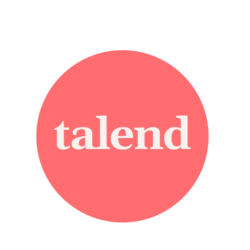SnapLogic
SnapLogic is an AI-powered, cloud-based integration platform that helps companies connect their data, applications, and APIs quickly and securely. It enables users to build data pipelines, automate workflows, and gain insights from their data.
SnapLogic
Find out moreWho is SnapLogic for?
- Application Developers
- Business Analysts
- Cloud Architects
- Data Architects
- Data Scientists
- Integration Specialists
What are the benefits of SnapLogic?
- Integration Platform
Things to consider
- Steep Learning Curve
SnapLogic is a cloud-based integration platform that allows businesses to connect applications, data, and APIs.
It offers a range of features and benefits that make it a popular choice for businesses of all sizes.
Who Should Use SnapLogic?
- Businesses that need to integrate multiple applications and data sources
- Companies that want to automate their workflows and processes
- Organizations that need to migrate data from legacy systems to modern platforms
- Enterprises that require real-time data integration and analytics
Key Benefits and Features of SnapLogic
- Cloud-based: SnapLogic is a cloud-based platform, which means that businesses can access it from anywhere and at any time.
- Easy to use: SnapLogic's drag-and-drop interface makes it easy for users to create integrations and workflows without any coding knowledge.
- Scalable: SnapLogic can handle large volumes of data and can scale up or down as needed.
- Real-time integration: SnapLogic offers real-time data integration, which means that businesses can make decisions based on the most up-to-date information.
- Pre-built connectors: SnapLogic has pre-built connectors for a wide range of applications and data sources, which makes it easy to integrate with existing systems.
How SnapLogic Compares with Competitors
SnapLogic is a popular choice for businesses looking for a cloud-based integration platform.
Here are some of the ways it compares with its competitors:
- Cost: SnapLogic is generally more affordable than its competitors, making it a good choice for small and medium-sized businesses.
- Scalability: SnapLogic is highly scalable and can handle large volumes of data, making it a good choice for enterprises.
- Ease of use: SnapLogic's drag-and-drop interface makes it easy for users to create integrations and workflows without any coding knowledge, which sets it apart from some of its competitors.
- Real-time integration: SnapLogic offers real-time data integration, which is a key feature that sets it apart from some of its competitors.
Application Developers
Keep up to date about API Management offers like SnapLogic
Privacy| Features |
|---|
Help & Support
- What are the benefits of using SnapLogic?
- SnapLogic provides a unified platform for data integration, application integration, and API management. It also offers a visual interface for designing and managing integrations, as well as pre-built connectors for popular applications and data sources.
- What types of integrations can be built with SnapLogic?
- SnapLogic can be used to build integrations between cloud-based and on-premise applications, databases, data warehouses, and APIs. It also supports real-time data integration and streaming data integration.
- What is the SnapLogic Enterprise Integration Cloud?
- The SnapLogic Enterprise Integration Cloud is a platform that provides a range of integration capabilities, including data integration, application integration, API management, and data engineering. It also includes features such as data governance, security, and monitoring.
- What industries does SnapLogic serve?
- SnapLogic serves a range of industries, including financial services, healthcare, retail, manufacturing, and technology.
- What is the pricing model for SnapLogic?
- Sorry, pricing information is excluded from this list of FAQs.
- What is SnapLogic?
- SnapLogic is a cloud-based integration platform that allows businesses to connect applications, data, and APIs in a single platform.
Comparisons
API Management for Application Developers
Data Management for Application Developers
API Management for Business Analysts
 SnapLogic / Mulesoft
SnapLogic / Mulesoft- SnapLogic / DreamFactory
- SnapLogic / 3Scale
- SnapLogic / Appcelerator
 SnapLogic / Tyk
SnapLogic / Tyk
Data Management for Business Analysts
 SnapLogic / Amazon Web Services (AWS)
SnapLogic / Amazon Web Services (AWS) SnapLogic / Collibra Data Governance Center
SnapLogic / Collibra Data Governance Center- SnapLogic / Data Quality Pro
- SnapLogic / MicroStrategy
- SnapLogic / SAS Business Intelligence
- SnapLogic / Launchpad
- SnapLogic / H2O.ai
 SnapLogic / RapidMiner
SnapLogic / RapidMiner SnapLogic / DataRobot
SnapLogic / DataRobot SnapLogic / KNIME
SnapLogic / KNIME SnapLogic / Neo4j
SnapLogic / Neo4j
Data Management for Cloud Architects
Data Management for Data Architects
API Management for Data Scientists
Data Management for Data Scientists
- SnapLogic / Microsoft Azure
- SnapLogic / Alibaba Cloud
- SnapLogic / CloudMigrator360
 SnapLogic / Python
SnapLogic / Python- SnapLogic / Swift for TensorFlow
- SnapLogic / Meteor
 SnapLogic / D3.js
SnapLogic / D3.js
Other API Management
Other Data Management
- SnapLogic / Oracle Cloud Infrastructure
 SnapLogic / INE
SnapLogic / INE SnapLogic / Symantec
SnapLogic / Symantec SnapLogic / Screaming Frog
SnapLogic / Screaming Frog- SnapLogic / Recorded Future
- SnapLogic / ThreatMetrix
- SnapLogic / Veeam Data Protection
- SnapLogic / Veritas Data Protection
- SnapLogic / Google Analytics
- SnapLogic / SAP Business Solutions
- SnapLogic / CloudEndure Migration
 SnapLogic / JetBrains
SnapLogic / JetBrains SnapLogic / Talend Data Quality
SnapLogic / Talend Data Quality SnapLogic / Comodo
SnapLogic / Comodo- SnapLogic / Nessus
- SnapLogic / Microsoft Office 365
 SnapLogic / Dropbox
SnapLogic / Dropbox- SnapLogic / Ember.js
- SnapLogic / Backbone.js
- SnapLogic / Mozilla Hubs
 SnapLogic / Jitterbit
SnapLogic / Jitterbit- SnapLogic / Integromat
 SnapLogic / Udacity
SnapLogic / Udacity- SnapLogic / n8n
- SnapLogic / Codecademy


